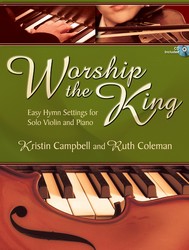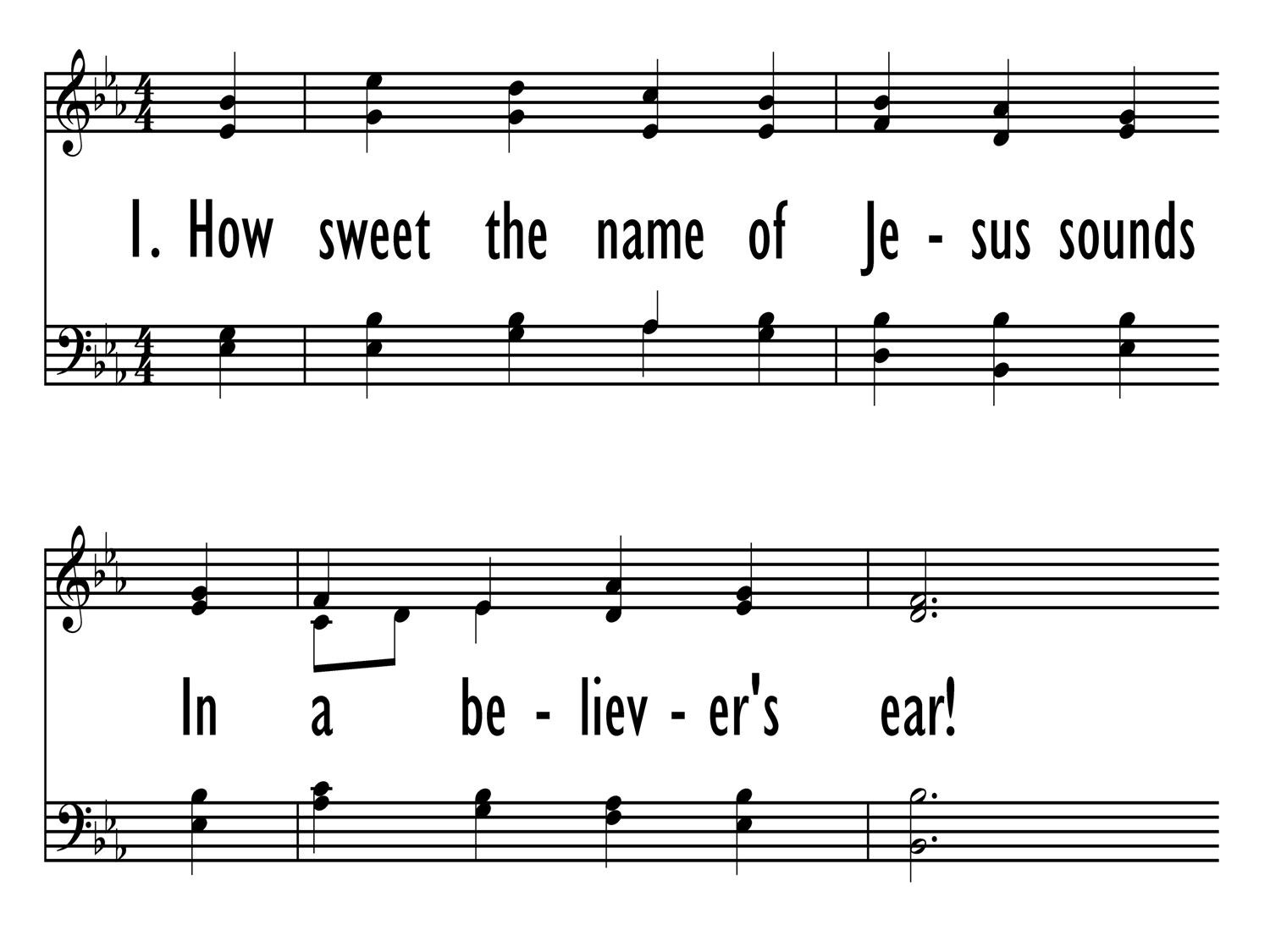- |
User Links
There Is a Land of Pure Delight

There is a land of pure delight, Where saints immortal reign
Author: Isaac Watts (1709)Published in 1398 hymnals
Printable scores: PDF, MusicXMLAudio files: MIDI
Representative Text
1 There is a land of pure delight,
where saints immortal reign;
infinite day excludes the night,
and pleasures banish pain.
2 There everlasting spring abides,
and never-withering flowers;
death, like a narrow sea, divides
that heavenly land from ours.
3 Sweet fields beyond the swelling flood
stand dressed in living green;
so to the Jews old Canaan stood,
while Jordan rolled between.
4 But timorous mortals start and shrink
to cross the narrow sea,
and linger shivering on the brink,
and fear to launch away.
5 O could we make our doubts remove,
those gloomy doubts that rise,
and see the Canaan that we love
with unbeclouded eyes;
6 Could we but climb where Moses stood,
and view the landscape o'er,
not Jordan's stream, nor death's cold flood,
should fright us from the shore!
Source: Ancient and Modern: hymns and songs for refreshing worship #804
Author: Isaac Watts
 Isaac Watts was the son of a schoolmaster, and was born in Southampton, July 17, 1674. He is said to have shown remarkable precocity in childhood, beginning the study of Latin, in his fourth year, and writing respectable verses at the age of seven. At the age of sixteen, he went to London to study in the Academy of the Rev. Thomas Rowe, an Independent minister. In 1698, he became assistant minister of the Independent Church, Berry St., London. In 1702, he became pastor. In 1712, he accepted an invitation to visit Sir Thomas Abney, at his residence of Abney Park, and at Sir Thomas' pressing request, made it his home for the remainder of his life. It was a residence most favourable for his health, and for the prosecution of his literary… Go to person page >
Isaac Watts was the son of a schoolmaster, and was born in Southampton, July 17, 1674. He is said to have shown remarkable precocity in childhood, beginning the study of Latin, in his fourth year, and writing respectable verses at the age of seven. At the age of sixteen, he went to London to study in the Academy of the Rev. Thomas Rowe, an Independent minister. In 1698, he became assistant minister of the Independent Church, Berry St., London. In 1702, he became pastor. In 1712, he accepted an invitation to visit Sir Thomas Abney, at his residence of Abney Park, and at Sir Thomas' pressing request, made it his home for the remainder of his life. It was a residence most favourable for his health, and for the prosecution of his literary… Go to person page >Text Information
| First Line: | There is a land of pure delight, Where saints immortal reign |
| Title: | There Is a Land of Pure Delight |
| Author: | Isaac Watts (1709) |
| Meter: | 8.6.8.6 |
| Language: | English |
| Refrain First Line: | O, there's a home prepared for me |
| Copyright: | Public Domain |
Notes
There is a land of pure delight. I. Watts. [Heaven anticipated.] First published in his Hymns and Sacred Songs, 1707, and again in the 2nd ed., 1709, Bk. ii., as No. 66, in 6 stanzas of 4 lines, with the heading "A prospect of Heaven makes Death easy." In the older collections very many variations in the text were introduced, but most of these have gone out of use. Of those which remain the following appeared in Hall's Mitre Hymn Book., 1836, No. 182:—
Stanza i. “Infinite day " to "Eternal day."
Stanza ii. " Never with'ring" to "Never fading."
"This heavenly" to “That heavenly."
Stanza v. " Could we make" to "could we all"
Stanza vi. " We but climb" to "we but stand."
The last alteration was made by Bishop Blomfield, to whom the "proofs" of the Mitre Hymn Book were submitted. Other variations are found in the text in some hymn-books: but latterly a strong reaction has taken place in favour of the original as given in Lord Selborne's Book of Praise, 1862-7. The use of this hymn has extended to all English-speaking countries, and it has been translated into many languages. In his Hymnologia Christiana Latina, 1871, R. Bingham has rendered four stanzas into Latin as, "Extat terra procul sanctis habitata beatis." This hymn is one of the earliest of Watts's compositions. A tradition exists in Southampton that it was suggested by the view of the Isle of Wight as seen from that town.
--John Julian, Dictionary of Hymnology (1907)
Timeline
Arrangements
Media
The Evangelical Hymnal with Tunes #524
- MusicXML (XML)
- MIDI file from The Bright Array #30
- MIDI file from The Cyber Hymnal #6611
- MIDI file from The Evangelical Hymnal with Tunes #524
- MIDI file from Gospel Hymns No. 6 #57
- MIDI file from Gospel Jewels #121
- MIDI file from Gospel Melodies and Evangelistic Hymns #219
- MIDI file from Make Christ King: a selection of high class gospel music for use in general worship and special evangelistic meetings #249
- MIDI file from The Southern Harmony, and Musical Companion (New ed. thoroughly rev. and much enl.) #279
- MIDI file from Songs of Sovereign Grace #181
- MIDI file from Triumphant Songs No.3 #160
- MIDI file from Uplifted Voices: a 20th century hymn book for sunday-schools and devotional meetings #77


 My Starred Hymns
My Starred Hymns






